
Earlier this week, on a call to explore writing coaching, Kaya picked my brain about writing a book for a trade audience, whether she’d be seen as an expert if she self published, how to evaluate the success of other books similar to hers, how to best build her platform, whether she should hire a publicist and much more. After about thirty minutes of questions, she mentioned in passing her desire to change careers and coach professionals in her field. Could she use her book to facilitate that career shift?
My bad for not asking about her vision for what the book might do for her life and career. Her final question made it clear to me that she was thinking of writing the wrong book (and for the wrong book market) to accomplish her goals. As a book writing coach, I should have started with that vision in the first place, so I’d be answering questions about the right book (and the right market) and not the wrong ones.
Kaya is not alone. Over the years I’ve spoken with many otherwise savvy business people who were either starting out with the wrong book market, or considering several book ideas, some of which did not dovetail with their goals and vision as well as others.
Why So Many People Write the Wrong Book for the Wrong Book Market

Sometimes, it’s easy to discount your greatest knowledge base and gifts, because you think “everyone knows that.” So you try to do something fancy: interview CEOs, create a book by reviewing all the latest research in your field. But the book that comes from what you know and do best is likely your greatest contribution to the field. And it will be a much easier book to write. And it just might be more in line with your goals.
Think of the executive recruiter who knows exactly what companies in his niche need to do to hire the best employees and retain them. He discounts the value of that knowledge because it’s second nature to him. Yet it’s exactly what CEOs and hiring managers need to know. And it’s exactly the book that will most likely help him grow his business.
Sure, a book about something you need to research might be more bright and shiny because you’ll learn something new, but that’s probably not your main criteria for writing your book. Besides, if you write with an open mind, you will learn new things. You’ll get to go deeper with your work, just be entering the process with a curious, open mind.
How to Write the Right Book for the Right Book Market
This writing coach’s advice: Before you go writing a book that sounds useful, intriguing, clever, challenging, marketable or trendy, ask yourself what you want to do with that book. If you do see it as advancing your career or changing careers, who is the intended audience, the book’s market, to facilitate that transition? Who would be your new clients? They are the book market for that book.
Here are 9 keys to clarifying your book market. You may also want to research your book market (or various potential target markets).
Reinventing the Dictionary
Just by chance, I happened to take a break from tying up this blog post and wandered into the living room while my 12-year-old was editing his latest Youtube video.
I thought the theme kind of fit this post in a tail-wagging-the-dog way. What do you think?
And, if you subscribe to Eskimo Banana on YouTube, you will make his day!
Have any questions about choosing a book market? Ask as a comment below.

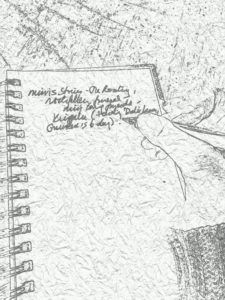 Writing Rules: Do They Trump Your Gut?
Writing Rules: Do They Trump Your Gut? Some of the most successful books break the rules. Who would have thought that a chapter of PowerPoint slides would work in a novel? Yet,
Some of the most successful books break the rules. Who would have thought that a chapter of PowerPoint slides would work in a novel? Yet, 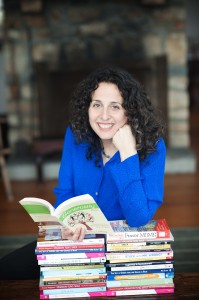
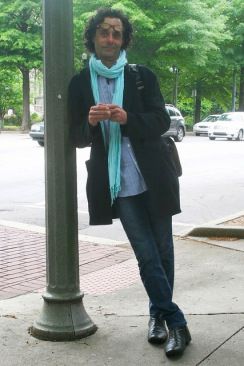 Last year, my colleague, the hyper-creative, witty and multi-talented Greg Miller, told me he was working on an ebook and asked if he could share an article I’d written as a resource in it. I was flattered, of course, and curious. Recently I had a peek at the book – and it is more inspiring, brilliant, practical and playful than I even imagined when he first shared the idea.
Last year, my colleague, the hyper-creative, witty and multi-talented Greg Miller, told me he was working on an ebook and asked if he could share an article I’d written as a resource in it. I was flattered, of course, and curious. Recently I had a peek at the book – and it is more inspiring, brilliant, practical and playful than I even imagined when he first shared the idea.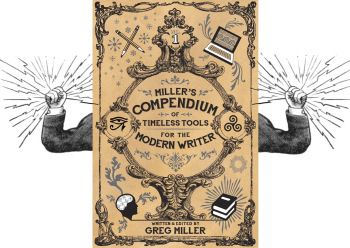 Greg: Many people will probably use the Compendium the way I’m already using it in my writing. I’ve used Aristotle’s Elements of Complex Plots to develop storylines. I’ve used Vonnegut’s Axis to chart the protagonists’ story arcs. I’ve applied specific narrative techniques from Patricia Highsmith and Parker & Stone (of “South Park” fame) to plot developments and I routinely use several outline techniques (out of twelve listed in the Compendium). I’ve also browsed it for additional perspectives, prompts and brainstorming ideas.
Greg: Many people will probably use the Compendium the way I’m already using it in my writing. I’ve used Aristotle’s Elements of Complex Plots to develop storylines. I’ve used Vonnegut’s Axis to chart the protagonists’ story arcs. I’ve applied specific narrative techniques from Patricia Highsmith and Parker & Stone (of “South Park” fame) to plot developments and I routinely use several outline techniques (out of twelve listed in the Compendium). I’ve also browsed it for additional perspectives, prompts and brainstorming ideas.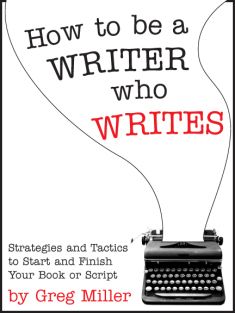 Greg: It took years. I originally thought it would be the Appendix to my first book,
Greg: It took years. I originally thought it would be the Appendix to my first book, 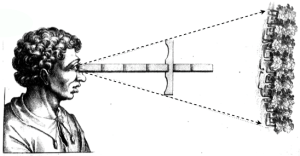 Greg: Thanks. I love the graphics (I say with all humility, because I didn’t make them). The book was originally just text. “Yes, but…” said a friend of an early draft, “it has to look like something.” Of course it did! You can’t just have page after page of words and lists, no matter how well organized. I started thinking about how to make it look like something – and what that something should be.
Greg: Thanks. I love the graphics (I say with all humility, because I didn’t make them). The book was originally just text. “Yes, but…” said a friend of an early draft, “it has to look like something.” Of course it did! You can’t just have page after page of words and lists, no matter how well organized. I started thinking about how to make it look like something – and what that something should be.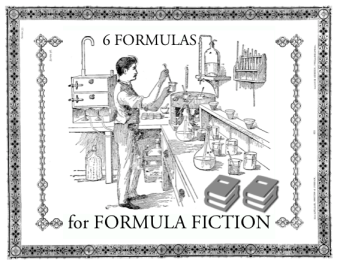 Greg: I found so many brilliant graphic ads while researching the Compendium, I wanted a way to share those too. A lot of the ads are for writing supplies; typewriters, ink, paper, pens and pencils – when their artistry was arguably at its height, and graphic art itself was flourishing, so they’re beautiful. And most of them celebrate the tools writers used then and still use today, so they’re inspirational.Lots of old books (and catalogs) included advertising supplements, so it was natural to create one in the Compendium where I could showcase the vintage ads.
Greg: I found so many brilliant graphic ads while researching the Compendium, I wanted a way to share those too. A lot of the ads are for writing supplies; typewriters, ink, paper, pens and pencils – when their artistry was arguably at its height, and graphic art itself was flourishing, so they’re beautiful. And most of them celebrate the tools writers used then and still use today, so they’re inspirational.Lots of old books (and catalogs) included advertising supplements, so it was natural to create one in the Compendium where I could showcase the vintage ads.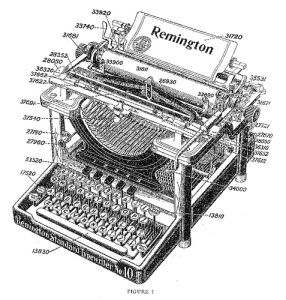 Greg: The funds are for the actual direct production costs of the First Edition e-book.The campaign goal is $5600. That’s $600 for the (amazing!) cover, $1200 for a professional copy edit, $500 for Kickstarter fees and $3300 for production layout, programming and production of the e-book (for epub and mobi). The Compendium is big and it has a lot of external and internal links that each have to be individually programmed and triple-checked for all formats. Production of an e-book of this complexity is what costs. You can’t just run it through Smashwords. You can find all the details on
Greg: The funds are for the actual direct production costs of the First Edition e-book.The campaign goal is $5600. That’s $600 for the (amazing!) cover, $1200 for a professional copy edit, $500 for Kickstarter fees and $3300 for production layout, programming and production of the e-book (for epub and mobi). The Compendium is big and it has a lot of external and internal links that each have to be individually programmed and triple-checked for all formats. Production of an e-book of this complexity is what costs. You can’t just run it through Smashwords. You can find all the details on 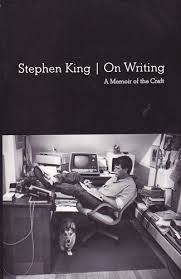 On a consultation call today with a new client, she’d mentioned that her self-confidence took a nosedive today. On reading, On Writing, by Stephen King–a fabulous book about writing well, by the way–she was crestfallen by his pronouncement that you’re not really a writer unless you write every day.
On a consultation call today with a new client, she’d mentioned that her self-confidence took a nosedive today. On reading, On Writing, by Stephen King–a fabulous book about writing well, by the way–she was crestfallen by his pronouncement that you’re not really a writer unless you write every day. One piece of advice I shared with the writer during her consultation is that self-doubt will inevitably arise for you as a writer. You need practices to lift you, to keep you in touch with your source of inspiration, to connect you with your deeper wisdom in order to counteract what some people call the “inner critic.” You don’t want to wait until the inner critic is upon you to develop this muscle for feeling connected.
One piece of advice I shared with the writer during her consultation is that self-doubt will inevitably arise for you as a writer. You need practices to lift you, to keep you in touch with your source of inspiration, to connect you with your deeper wisdom in order to counteract what some people call the “inner critic.” You don’t want to wait until the inner critic is upon you to develop this muscle for feeling connected.
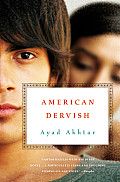
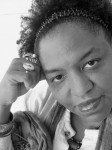

 Crystal Wilkinson is the author of Blackberries, Blackberries and Water Street, the latter a long-list finalist for the prestigious Orange Prize and short-listed for a Zora Neal Huston, Richard Wright Foundation Legacy Award. She is the recipient of the Chaffin Award for Appalachian Literature.
Crystal Wilkinson is the author of Blackberries, Blackberries and Water Street, the latter a long-list finalist for the prestigious Orange Prize and short-listed for a Zora Neal Huston, Richard Wright Foundation Legacy Award. She is the recipient of the Chaffin Award for Appalachian Literature.